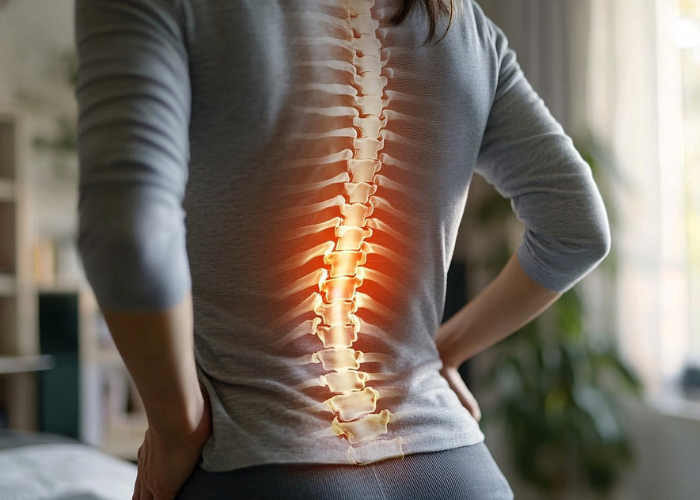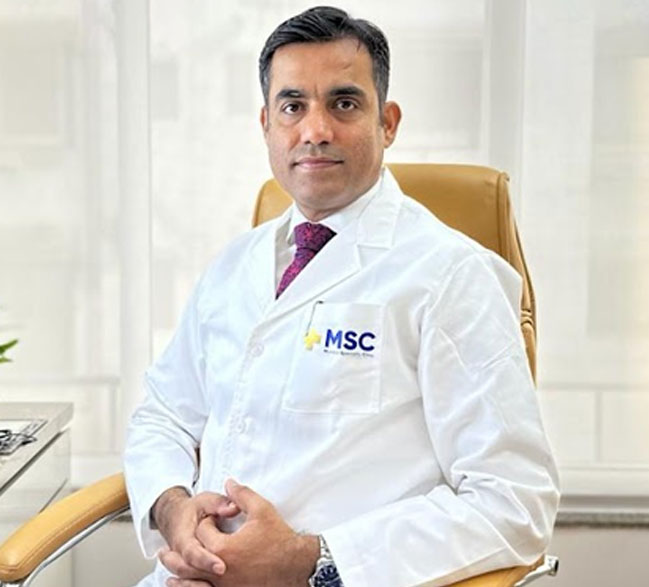Understanding Scoliosis: Symptoms, Diagnosis, and Treatment

What is Scoliosis?
Scoliosis is a condition in which the spine curves sideways, often forming an "S" or "C" shape. This condition can affect people of all ages, from children to adults. Early detection is crucial in preventing the condition from worsening. While mild cases might go unnoticed, more pronounced curvatures can cause visible deformities and lead to physical symptoms, including discomfort and movement difficulties.
Scoliosis can be caused by a variety of factors. In many cases, it is idiopathic, meaning the cause is unknown, but it can also result from other conditions like muscular dystrophy, cerebral palsy, or birth defects. In adolescents, scoliosis is commonly diagnosed during growth spurts, which is why regular check-ups are essential during this period.
Common Symptoms of Scoliosis
Some of the early signs of scoliosis may include:
Uneven shoulders or shoulder blades
One hip higher than the other
Visible curve or tilt of the back
Back pain or discomfort, especially after physical activity
Fatigue or muscle weakness after prolonged activity
In some cases, scoliosis can progress without significant pain, but if left untreated, it can lead to more severe complications such as difficulty breathing or problems with posture.
Diagnosis of Scoliosis
The diagnosis of scoliosis begins with a thorough physical examination. During the examination, the doctor will observe the posture, alignment of the back, and any visible signs of curvature. If scoliosis is suspected, imaging tests like X-rays are used to assess the degree of curvature and determine whether the condition is progressing.
Scoliosis is typically classified into three categories based on the severity of the curve:
Mild Scoliosis (less than 25 degrees)
Moderate Scoliosis (25–45 degrees)
Severe Scoliosis (more than 45 degrees)
Once diagnosed, doctors will evaluate the patient's age and growth potential to determine the most appropriate treatment approach.
At our Mumbai Institute of Spine Surgery (M.I.S.S), we use advanced diagnostic techniques to ensure accurate assessment of scoliosis cases.
Treatment Options for Scoliosis
The treatment plan for scoliosis depends on the severity of the condition and the age of the patient. Treatment options include:
Observation and Exercises: For mild scoliosis, doctors may recommend regular monitoring and exercises that help improve posture and strengthen the muscles supporting the spine. Physical therapy can also help with flexibility and reduce pain.
Bracing: For moderate scoliosis, a brace may be recommended, especially if the patient is still growing. The brace helps prevent the curve from worsening and can be worn under clothing for most of the day.
Surgical Intervention: In more severe cases, or if the curve is progressing, surgery may be necessary to correct the spine's curvature. Traditional open surgery can be used, but modern advancements have led to the development of minimally invasive scoliosis surgery, which is less traumatic and offers a quicker recovery time.
Minimally Invasive Surgery: Minimally invasive surgery uses smaller incisions and advanced imaging technology to correct the spinal curve with greater precision. This technique offers several benefits over traditional surgery, including:
Faster recovery times
Less pain and discomfort
Smaller scars and less blood loss
Reduced risk of complications
Robotic-Assisted Surgery: Robotic systems allow for even greater precision in scoliosis surgery. Using 3D imaging and tailored implants, robotic-assisted surgery ensures optimal alignment of the spine, improving both safety and long-term outcomes.
Scoliosis Treatment Centers in India
Patients from various cities including Mumbai, Delhi, Pune, Nashik, Thane, Navi Mumbai, Raipur, Indore, Bhopal, Jaipur, and others can access top-quality scoliosis treatment at leading hospitals such as Lilavati Hospital, Bombay Hospital, Breach Candy Hospital, and Saifee Hospital.
Our Centre of Excellence in Spine Surgery (C.E.S.S) provides comprehensive care for all spine-related conditions including scoliosis.
Why Choose Dr. Vishal Kundnani for Scoliosis Treatment?
Dr. Vishal Kundnani is the Director and Head of Spine Services at Lilavati and Bombay Hospitals. He is considered one of the leading scoliosis specialists in India, known for his expertise in both traditional and minimally invasive scoliosis surgeries. With over 15 years of experience, Dr. Kundnani offers personalized treatment plans that are tailored to each patient's specific needs. His advanced surgical techniques ensure the best possible outcomes with minimal recovery time.
Learn more about our spine team and their expertise in treating various spine conditions including herniated disc, spinal stenosis, and spondylolisthesis.
Schedule Your Consultation
If you or your child is experiencing symptoms of scoliosis, don't wait to get professional advice. Early intervention can significantly improve outcomes and prevent further complications.
📞 Call: 9619100123, 9619200123, 9619300123 to consult Dr. Vishal Kundnani, the best scoliosis surgeon in Mumbai and India.
Visit our contact page for more information or to schedule an appointment. You can also explore our patient testimonials and case studies to learn about successful scoliosis treatments.




